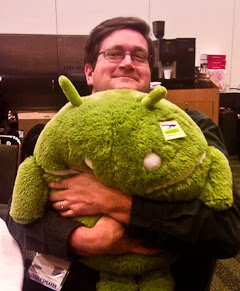Fragmentation!? Google’s Dan Morrill Doesn’t Want to Hear the F-Word Anymore

Going back all the way to the beginning of Android, the use of the term fragmentation in regards to the platform has gone hand-in-hand with its development. Morrill doesn’t want to hear it anymore, and claims an ill-defined criteria for fragmentation has led to excessive and sensationalist reporting on the matter. To him, Android is already set up to make sure fragmentation is a non-issue.
For as much as I love reading the Developers Blog, Morrill’s diatribe does very little to address the elephant in the room. He quickly sweeps the discussion of the term aside to talk about device compatibility. And really, if you read what he says about developers creating apps that won’t work on all systems, he in a sense is proving that fragmentation is a reality. Sure, Google will take care of making sure an incompatible app doesn’t appear in a devices Android Market, but isn’t that the very issue at the heart of fragmentation?
When I can show my good friend who owns an HTC Hero how I can use Navigation in Google Maps and when he tries to duplicate the functionality and his device won’t let him, that’s fragmentation. Fragmentation is when users are clueless and confused as to when they may see a new OS update on their devices. Fragmentation is when new devices are slated to be shipped with OS versions three iterations behind the current one. Fragmentation means that the user experience is not uniform across all devices running the operating system. [I should be clear that when I say uniform I am not suggesting all devices should have the same UI or the same hardware, but merely that all devices should be able to perform the same functions, and yes certain older hardware will become dated and non-compatible.]
Having an Android Market that automatically hides apps from users who can’t take advantage of them isn’t solving fragmentation, it’s avoiding the issue altogether. Heck, some users don’t even get to have an Android Market.
While Google may be sidestepping the fragmentation issue in their rhetoric, they are definitely working on solving the issue in the long-run in terms of software. Future updates that separate core apps from the Android SDK and a more stable once-per-year release schedule should help a great deal, but for now the fragmentation story is more muddled then ever.
I’ll leave Dan Morrill with one more definition of fragmentation: when you announce the latest and greatest version of your OS and users are immediately confused or dissatisfied when learning there is no actual firm plan or announced date for getting it on their handsets. I don’t like to give the iPhone much, but at least we know that when Steve Jobs leaves the stage at the upcoming WWDC, users of his smartphone will know exactly when, where, and how they will receive the latest update.